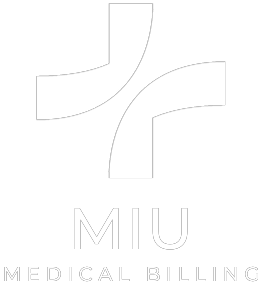Introduction:
Denial management strategies in medical billing play a crucial part in ensuring that the revenue cycle for healthcare providers runs smoothly. When optimizing reimbursements and maintaining financial stability, it is essential to handle claim denials exceptionally efficiently. In this article, we will delve into the complexities of denials management and provide five tried-and-true strategies that will assist healthcare companies in becoming proficient in this essential medical billing component.
1. Acquiring an Understanding of the Denial Management Strategies in the Medical Billing Industry
In medical billing, denials management refers to systematically identifying, analyzing, and resolving claims that have been incorrectly denied. To adequately address difficulties, it is necessary to have a comprehensive awareness of the denial landscape. Healthcare providers can design focused strategies to reduce the number of rejections and increase revenue flow if they act proactively and recognize frequent reasons for denials.
2. The Implementation of Comprehensive Front-End Procedures
The front-end process must be well-established to be considered a practical component of denials management in medical billing. It is possible to dramatically reduce the chance of claim denials by assuring data integrity throughout the process’s first stages. This includes anything from accurate patient registration to precise coding. The front-end workflow can be streamlined by the utilization of sophisticated technology and automated verification tools, which can reduce the number of errors and contribute to an overall improvement in billing accuracy.
3. The use of data analytics to recognize patterns:
One of the most essential aspects of mastering denial management services in medical billing is learning how to harness the power of data analytics. To help healthcare professionals take preventative actions, it is possible to uncover patterns, trends, and common denominators by analyzing historical denial data. By identifying recurrent problems, companies can improve their procedures, address the underlying causes, and reduce the likelihood of repeat denials.
4. Establishing and Putting into Practice Efficient Communication Strategies with Payers:
The establishment of open channels of contact with payers is essential to resolve claim denials promptly. Maintaining consistent communication with insurance companies is beneficial for gaining an awareness of their particular requirements and resolving concerns promptly. Using a collaborative strategy helps cultivate a constructive connection between healthcare providers and payers, makes denial management strategies in medical billing easier to resolve more reasonably, and reduces the total impact on revenue.
5. Making Investments in the Education and Training of Staff:
It is essential to have well-trained and knowledgeable personnel to manage successful denials in medical billing. Conducting training sessions regularly is recommended to ensure that billing professionals are always updated on the most recent coding guidelines, payer policies, and industry changes. Healthcare companies can empower their staff to navigate the complexity of medical billing by investing in ongoing education. This will result in a reduction in the number of denied claims and an increase in the number of successful claims.
Conclusion: Comprehending the Art of Denial Management to Achieve Financial Success
In conclusion, the ability to handle Denial management strategies in medical billing is necessary for the financial success of healthcare companies. For providers to confidently navigate the complex world of medical billing, they must grasp the denial environment, create solid front-end processes, leverage data analytics, cultivate good communication with payers, and invest in staff training. Adopting these tried-and-true tactics will position firms for sustained financial success in the ever-changing field of denial management in medical billing. This is because the healthcare industry is continuing to transform.




